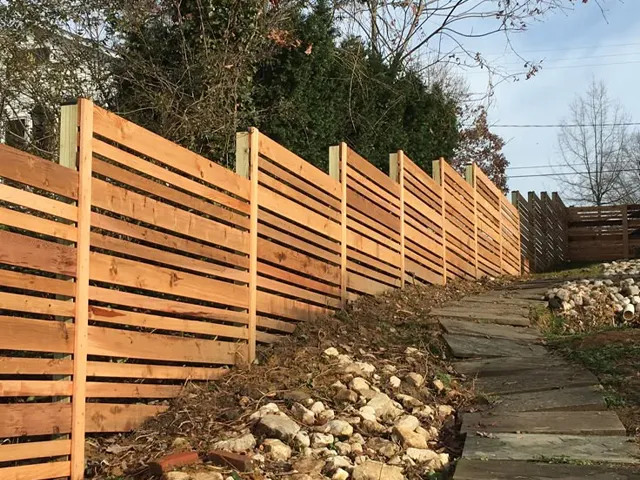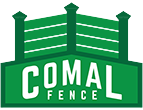
Table of Contents
Learn how different soil types and terrain conditions affect fence durability, installation methods, and what you can do to ensure a long-lasting fence in Central Texas.
When it comes to building a strong and long-lasting fence in Central Texas, it’s not just about picking the right design or material. One of the most important — and often overlooked — factors is the type of soil and terrain on your property.
Whether you live in New Braunfels, Boerne, or the greater Hill Country, understanding how the ground beneath your feet affects fence installation can save you money, extend your fence’s lifespan, and ensure it performs the way you need.
At Comal Fence, we specialize in fences built to last — no matter what the Texas soil throws at them.
Why Soil and Terrain Matter for Fence Installation
Different soil types behave differently when supporting a fence. If not properly addressed, challenges like shifting soil, poor drainage, or uneven ground can lead to:
- Leaning or unstable fence posts
Warped or sagging panels
Shortened fence lifespan
Increased repair and maintenance costs
That’s why we always start with a full property evaluation, just like when helping homeowners choose the right type of fence for their needs.
Common Soil Types in Central Texas and How They Affect Your Fence
Central Texas is known for its challenging mix of clay, sand, rock, and loam. Here’s how each one affects your fence installation.
Clay Soil: Expands and Contracts
Clay-heavy soils are tricky because they swell when wet and shrink when dry. Over time, this can cause fence posts to shift or tilt, especially during our rainy seasons.
Pro tip: To minimize movement, we recommend deeper posts set in a solid base of gravel and concrete — a method backed by studies from the USDA Soil Basics.
Sandy Soil: Loose but Drains Well
Sandy soil, common in parts of Central Texas, drains water quickly but doesn’t hold posts firmly. Without the right prep work, you could end up with a wobbly fence.
In sandy areas, we typically dig wider, deeper holes and anchor posts with extra gravel and a high-strength concrete mix. It’s a simple adjustment that makes a huge difference.
Rocky Soil: Hill Country Challenges
If your property sits on rocky terrain — common around Boerne and the Hill Country — you already know digging isn’t easy. Traditional digging methods often won’t cut it.
We often use rock augers to drill post holes, and in some cases, fences are mounted directly into the rock with heavy-duty brackets for stability. It’s tough work, but it ensures your fence won’t budge.
Loamy Soil: Nature’s Best-Case Scenario
If you’re lucky enough to have loamy soil (a balanced mix of sand, silt, and clay), congratulations — it’s ideal for fence building. Loam offers both solid support and excellent drainage.
Even with loam, we still recommend setting posts in concrete for maximum strength and to help your fence hold up for decades to come.
How Terrain Impacts Fence Design and Installation
Soil isn’t the only factor to think about. Your property’s terrain — whether it’s flat, sloped, rocky, or flood-prone — changes how a fence should be installed.
Slopes and Hills
If your land isn’t perfectly flat (and in Central Texas, that’s pretty common), you’ll need a design that fits the terrain. We often recommend stepped fencing or using panels that can “rack” to follow the slope, keeping the fence line smooth without awkward gaps.
If you’re considering a privacy fence for your sloped yard, materials like cedar or vinyl work beautifully. You can learn more about privacy fencing options here.
Flood Zones and Erosion Areas
Homes near rivers, creeks, or low-lying areas need special care during fence installation. Soil erosion can wash out traditional posts if they’re not properly reinforced.
In these situations, we typically use deeper posts set with extra gravel for drainage, and often recommend steel posts for extra strength in flood-prone zones.
Rocky or Uneven Ground
When a property has uneven ground or lots of rock outcroppings, fencing isn’t impossible — it just requires some creativity. We often use custom panels, more frequent posts, or special mounting systems to ensure everything stays tight and level.
Best Practices for Fence Installation on Tough Terrain
Here’s what we do to make sure your fence stands strong no matter the challenges:
Full Site Evaluation: We inspect the soil, grade, and drainage before we even start digging.
Material Selection: Certain materials like pressure-treated wood or powder-coated steel perform better depending on the conditions.
Deeper Post Setting: Posts set deeper with a good concrete base help prevent shifting, especially in clay and sand.
Smart Design: Adjusting fence layout to match slopes or using heavier-duty materials where needed protects your investment long-term.
And yes, we tailor all of these choices to your property — not a “one-size-fits-all” template.
Why Comal Fence is Trusted Across Central Texas
Every property is different — and every installation we do reflects that.
At Comal Fence, we combine local experience with custom solutions to build fences that hold up against Texas’ toughest soil and terrain.
Whether you need a traditional cedar privacy fence in New Braunfels or a heavy-duty custom iron fence on rocky Hill Country land, we’re ready to help you protect what matters most.
Final Thoughts
Your fence isn’t just about how it looks on day one — it’s about how it holds up for years to come.
Understanding the impact of soil and terrain before installation can save you costly repairs and help you enjoy a sturdy, beautiful fence that’s ready for everything Central Texas has to offer.
Thinking about a new fence project?
Reach out to Comal Fence today for a free consultation. We’ll help you design a fence that’s strong, stylish, and built for the land you love.
